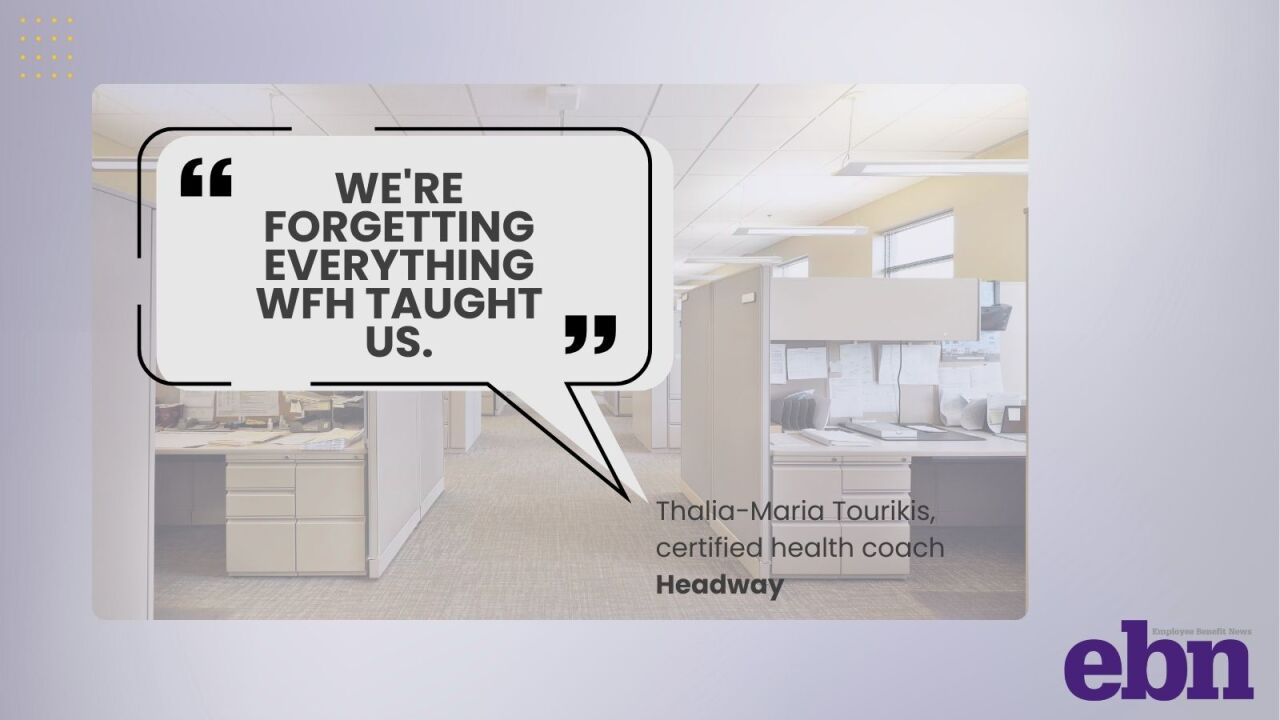Neighborhood Trust Financial Partners, a nonprofit that has taken its financial wellness program to employers across the country, has teamed up with
Employees at companies offering the Trusted Advisor financial wellness benefit will be able to access Self Lender’s credit building and savings product, which essentially allows workers to obtain small 12-month loans that are held in FDIC-insured interest-bearing CD accounts. As workers repay the loans, they are able to establish a credit history, which is critical in securing mortgages and personal loans at reasonable interest rates.
Without a credit history, consumers not only pay higher rates but are disadvantaged in a number of other ways, says Justine Zinkin, CEO of Neighborhood Trust Financial Partners.
“It’s really important to have a tool that helps you establish credit without running the risk of racking up too much debt or getting exploited by a predatory provider,” she says.

The nonprofit launched the Trusted Advisor financial wellness program five years ago. It is available at 56 employers, ranging from large well-known enterprises, such as Staples and Fresh Direct, to small and medium-sized companies. The program reaches an eligible audience of 140,000 workers annually, according to Neighborhood Trust.
The program makes financial counselors available to employees needing help with their finances. The confidential counseling sessions are held via phone or Skye.
“We focus on helping workers make sure that their paychecks and all the benefits available to them at work are optimized,” Zinkin says.
Stephen McManus, 29, managing director of Three Jewels, a yoga and meditation studio in Manhattan, says that he saved close to $500 a month after the program helped him realize how much money he was spending on eating out.
“It’s crazy how much they’ve actually helped me,” he says of the program. “They made me feel much more comfortable around money and my finances.”
Neighborhood Trust decided to add the credit builder tool to its financial counseling platform as part of its mission to help low and moderate-income people. It lauded the Self Lender product as a creative way to help struggling employees not only establish credit, but also build an emergency savings account.
“Healthy credit and the development of an emergency savings fund are two of the essential building blocks of financial health,” Zinkin says.
As they repay their loans, Self Lender “credit-builder” account holders earn interest at the rate of 1/10th of 1% on their money.
“It’s designed to help consumers establish credit history and save money at the same time, but it’s not super high-yield,” says James Garvey, CEO of Self Lender.
Self Lender, which launched about two years ago, has 160,000 customers nationally and $130 million in loans. Most credit-builder account holders (70%) are women, and most are under the age of 35. The average customer makes $50,000 and takes out an average of $800, according to Garvey.
A customer who opens a $1,000 credit-builder account, for instance, would commit to making $89 monthly payments for 12 months, according to the
The interest rate on the loans ranges from 10% to 13% depending on the amount borrowed, a rate that Garvey says is “reasonable and way below what they would be paying if they walked into a bank for a personal loan.”
Customers are also charged a one-time administrative fee ranging from $9 to $15. The loans are available from Self Lender’s partners Lead Bank and Sunrise Banks.
One of the goals of Neighborhood Trust’s financial wellness program is to provide employees with access to the right financial products and to curate those products “because the market is sort of like the Wild West,” Zinkin says. “It’s very hard for people to navigate.”
“Self Lender is a product that we studied thoroughly, and thoroughly believe they have figured out how to operate at scale with a product that helps people establish credit,” she says.






